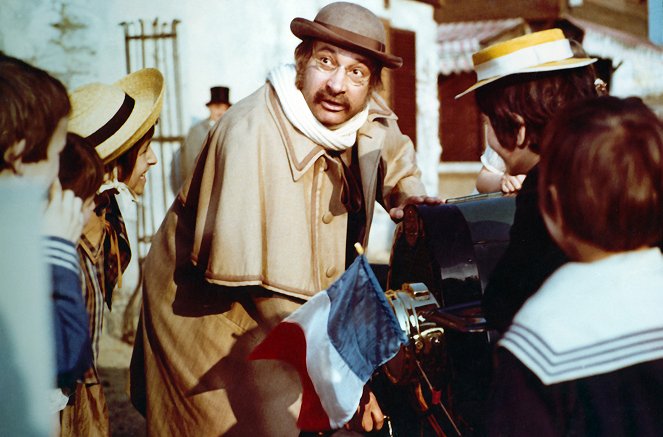Directed by:
Joachim HessCinematography:
Otto HanischComposer:
Jacques OffenbachCast:
Liselotte Pulver, Fred Düren, Rolf Hoppe, Gerry Wolff, Werner Senftleben, Inge Meysel, Helga Piur, Fred Delmare, Erich Breese, Dorit Gäbler, Gisela Bestehorn, Renate Schubert, Helmut Bez, Achim WichertPlots(1)
In the early 1960s, DEFA, the state-owned film studio of the German Democratic Republic, invited Horst Bonnet, a celebrated musical-theatre director and former assistant to Bertolt Brecht and Walter Felsenstein, to create an operetta film for them. Bonnet was interested, but wanted to get some experience with the medium, which led to his apprentice exercise Salon Pitzelberg (1964), an adaptation of Jacques Offenbach’s eponymous one-act work realised as part of the satirical shorts series, Das Stacheltier. It took until 1968 for DEFA and Bonnet to decide on the piece they’d give the big-screen treatment. Once again an Offenbach, but this time around the operetta, "Orphée aux enfers". During pre-production, Warsaw-pact troops invaded the ČSSR – against which Bonnet protested, landing him in prison for 13 months. DEFA, in an act of quiet solidarity, waited with this extremely prestigious project until his release. It’s difficult not to see shades of this history in the unexpectedly proto-campy, modernist madhouse that Orpheus in der Unterwelt became. The original operetta was already a satire on the Second Empire’s bourgeoisie and reigning elite. Bonnet then drew implicit yet unmistakable parallels with the GDR nomenklatura, understanding that ideologies and creeds might change but the upper echelon as a class phenomenon remains the same: vain and self-serving. A true masterpiece of political entertainment! (International Film Festival Rotterdam)
(more)Gallery (4)
Photo © MDR / DEFA-Stiftung / Herbert Kroiss
